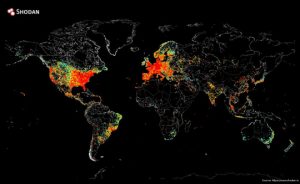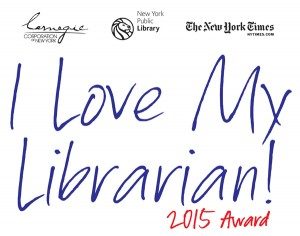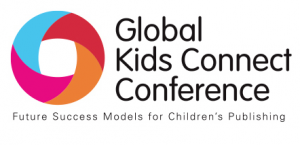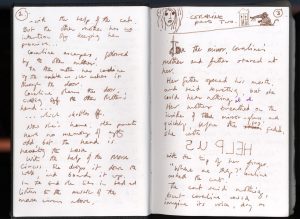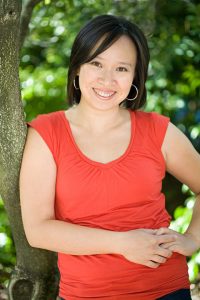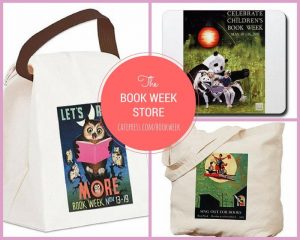Year: 2015
-
Reflecting on CBC Diversity
Contributed by Mark von Bargen, Senior Director of Trade Sales of Children’s Books at Macmillan
With the year coming to a close, I am finishing up a two-year term on the CBC Diversity Committee. It has been a great honor to work with the committee. They are doing amazing work, putting together terrific programs that are bringing about real change in our industry. As a final blog post, I wanted to share some thoughts.
When first starting on the committee, it seemed like a swirl of ideas, opportunities, and issues, all combating preconceived notions. It was hard to get a sense of where to go. One issue that kept coming up was the ability to find diverse books — the problem of “discoverability.” With somewhere between six hundred thousand and one million books being published each year, accurate categorization is vital to ensuring that books can be found. Our industry subject codes, the Book Industry Standards and Communications (BISACs) are outdated, with some categories not represented. Some books that address diverse social issues do not have an aligned category code. As a result, they are given overly generic codes. When this happens, especially with novels, they are often lost in the tidal wave of “fiction.” Thanks to the work of the committee, there are new codes being added to help the categorization problem. There is more to be done. Categorization is not static. It evolves, like language. As a group we need to keep current.
What keeps coming back to me is that diversity is about sharing stories and ensuring that voices are heard. Of course, the issue goes beyond children’s books. But every change starts with a moment; a moment that is a conversation, a thought, or a story. The stories we publish create those moments. There are enough logistical challenges in publishing books. The whole publishing process, from author to reader, can feel like a “pass the egg” game at a kids’ party.
It’s pretty safe to say that we all share the goal of understanding our world and making it better. Thanks to technology, the ability to speak up and be heard is more powerful than we could have imagined a generation ago. I recently saw a map that shows how much of the world is connected to the internet.
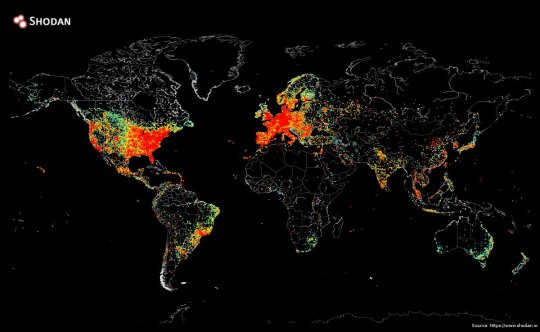
It’s startling to see how concentrated the coverage is, where it is, and where it isn’t. Looking at this map shows how lucky we are. To understand our world, we need to be the light for those who are not. We have the tools to do that. We have the passion to do that. In some ways, we are being the light for those in the darkness.
We all have our comfort zones. When I look at what is now in mine, much of it was at one time outside of it. As we accumulate experience, our comfort zone grows —consciously and subconsciously. Great stories come from many sources. Getting out of one’s comfort zone is essential to finding those stories. My resolution for 2016 is to venture more out of my comfort zone and make it bigger.
None of what I’m saying is new. But putting it down in writing is new for me. Thanks for listening.


Mark von Bargen is the Senior Director of Trade Sales of Children’s Books at Macmillan. He started in the book business in 1988 as a book store manager and has held buying, marketing and sales positions at Baker & Taylor, Simon & Schuster and Macmillan. He currently specializes in children’s book sales through independent bookstores and educational wholesalers and is an out-going member of the CBC Diversity Committee.
-
NYPL Librarians Share Book Recommendations
Librarians Lynn Lobash and Gwen Glazer will share recommendations in person at the landmark 42nd Street building, as well as on Twitter @NYPLRecommends (hashtag #TheLibrarianIsIn), and via web form. Below are …
-
2016 Teen Tech Week™ focuses on STEAM and underserved teens
CHICAGO – The Young Adult Library Services Association (YALSA), a division of the American Library Association (ALA) invites library staff to encourage teens to “Create it at your library” for …
-
Dey Street Books And HarperCollins Children’s Books Acquire Memoir by Abby Wambach
New York, NY – Dey Street Books, an imprint of William Morrow Publishers, and HarperCollins Children’s Books have acquired world rights to a memoir and young reader’s edition by Abby …
-
2016 Teen Choice Book of the Year: Nominate Your Favorites Now!
The 5 titles that get the most votes will become the finalists for the Teen Choice Book of the Year. Just fill out the form on the Teenreads website by …
-
Scholastic News Names The ‘8 Coolest Kids We Met in 2015’
New York, NY – The editors of Scholastic News® today announced their list of the 8 Coolest Kids We Met in 2015, a reflection on the most inspiring, creative, and …
-
#DrawingDiversity: ‘Words Set Me Free’ illustrated by James E. Ransome

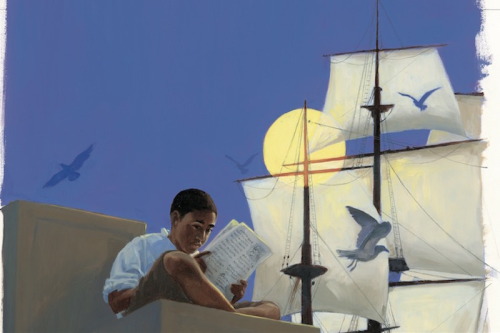
Words Set Me Free: The Story of Young Frederick Douglass by Lesa Cline-Ransome, illustrated by James E. Ransome (Paula Wiseman Books/Simon & Schuster, January 2012). All rights reserved. @simonkidsuk
-
The Value of Rereading
New readers improve their literacy skills with each rereading, specifically in the following areas: Vocabulary Pattern and rhythm recognition Fluency Reading comprehension Confidence So the next time an eager young reader asks …
-
2015 I Love My Librarian Awards Announced
The awards were granted along with a $5,000 prize at a ceremony held on December 3 in New York City. The I Love My Librarian Award winners are living examples of …
-
International Tumblr Sensation Emily Trunko to Publish Two Books with Crown Books for Young Readers
New York, NY — Crown Books for Young Readers, an imprint of Random House Children’s Books, has acquired and will publish DEAR MY BLANK and THE LAST MESSAGE RECEIVED, book …
-
Inaugural Global Kids Connect Conference
The event brought together publishers, editors, and agents sharing professional insight on the state of print and digital publishing, both in the United States and abroad. Recurring themes included the growth …
-
Neil Gaiman on Writing Longhand
I was sparser, I would think my way through a sentence further, I would write less, in a good way. And when I typed it up, it became a very …
-
#DrawingDiversity: ‘Grandfather Gandhi’ illustrated by Evan Turk

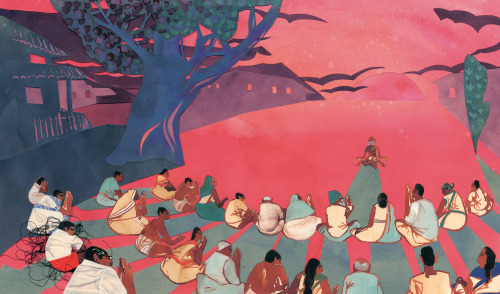
Grandfather Gandhi by Arun Gandhi and Bethany Hegedus, illustrated by Evan Turk (Atheneum/Simon & Schuster, March 2014). All rights reserved. @simonkidsuk
-
Malinda Lo to Write a Young Adult Mystery Novel
I’ve been reading mystery fiction since I was a child, when I devoured Nancy Drews by the dozen, and even today the main genre of fiction I read is crime …
-
Holiday Gifts for Every Kid Lit Lover!
Shop now at the official Children’s Book Week Store! Established in 1919, Children’s Book Week is the longest-running national literacy initiative in the country. From May 2-8, 2016, the Children’s …
-
U.S. House passes Every Student Succeeds Act
CHICAGO – The U.S. House of Representatives passed S. 1177, the Every Student Succeeds Act (ESSA). The bill now moves on to the Senate and if passed, and signed into …
-
Michael Pietsch Praises Young Readers
The generation of young readers now entering their adult years had a richer diet of superb books published for them than any before…As this generation comes to the market over …
-
Penguin Random House Reveals New E-book Terms of Sale for Libraries
Under the new model, all adult and children’s frontlist and backlist e-books will be available for licensing without loan caps (as was previously the case for Penguin titles). The move …
-
2016 Morris Award Finalists Announced
This year’s finalists are: Because You’ll Never Meet Me by Leah Thomas (Bloomsbury Children’s Books) Conviction by Kelly Loy Gilbert (Hyperion/Disney Book Group) Simon vs. the Homo Sapiens Agenda by Becky Albertalli (Balzer …
-
It’s the Economy
Contributed by Nikki Garcia, Assistant Editor at Little, Brown Books for Young Readers
As someone who’s been lucky enough to be an editor for over two years, I’m interested in highlighting and advocating for all kinds of diversity. By now, we’re all familiar with the different types of diversity: race and ethnicity, sexuality and gender, ability, and religion—but one that doesn’t seem to be spoken about as much is socioeconomic diversity. This is the one I have felt deeply over the years. Money plays an important role in all of our lives—whether it’s the school we attended and the amount of financial aid we received, or access to job opportunities, our identities have all been shaped by finances from an early age. I often felt like I had to figure it out for myself—and figure it out for my family too. So when we talk about diversity of authors, their characters, and their stories—and the publishing professionals who turn these stories into books—economics are and always will be a factor.

This is something I’ve experienced firsthand. Growing up in New York City, one of the most expensive cities in the world, money was a constant worry. Even when I was too young to really understand how money worked, I still held my breath until this magical day arrived… payday. I knew money was something my parents stressed about. I could feel it in the air. But it wasn’t until I was much older that I truly understood that many of my hardships came from a socioeconomic level. My family didn’t have an understanding of the best ways to handle money, and this lack of knowledge was passed down, generation by generation.
My parents also assumed I was being given all of the information I needed from my high school guidance counselor regarding affordable colleges and how to apply for financial aid for school. But because the school was extremely overcrowded, I never received this information. This led to attending colleges I couldn’t really afford and racking up a student loan debt I wouldn’t wish on my worst enemy. So much information was missing, and I wasn’t taught to go look for it because… well, that was just not something we did.
These hiccups along the way to working in publishing made it so much harder to get to this moment in my career. This makes me question whether many people in publishing have had similar experiences. I wonder about the aspiring authors who can’t afford writing classes, or the promising future editors, publicists, and others who can’t afford to spend a summer in New York City to take on an internship. And what about all of those smart and diverse individuals who don’t even know that publishing exists as a viable career option? What can we do to help bring more socioeconomic diversity into the world of publishing?
I’m so happy to see organizations like We Need Diverse Books begin to tackle this problem. Their scholarship program is only the first step in adding more diversity. So I’m posing this question: How do we reach the high school and college students that are figuring all of this out on their own? How do we help the ones who don’t have the means or the information to help themselves? All suggestions are welcome.

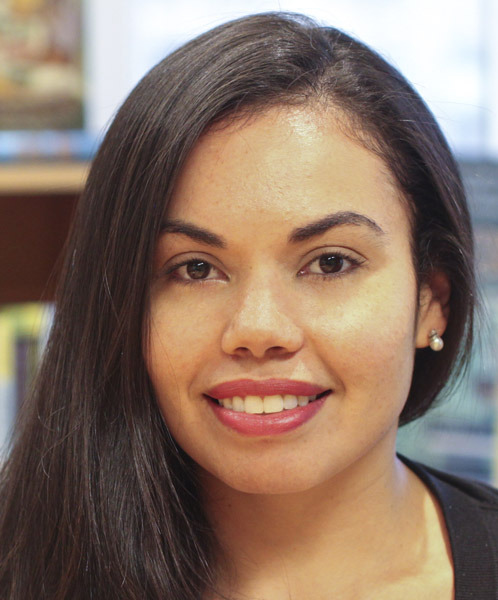
Nikki Garcia is an assistant editor at Little, Brown Books for Young Readers where she works on books for all ages. During her time at LBYR, she has had the honor of working with authors such as Peter Brown, Wendy Mass, Matthew Quick, and Monica Brown. Born and raised right here in New York City, Nikki graduated from St. John’s University, and thankfully didn’t have to travel very far to make her dreams come true.

